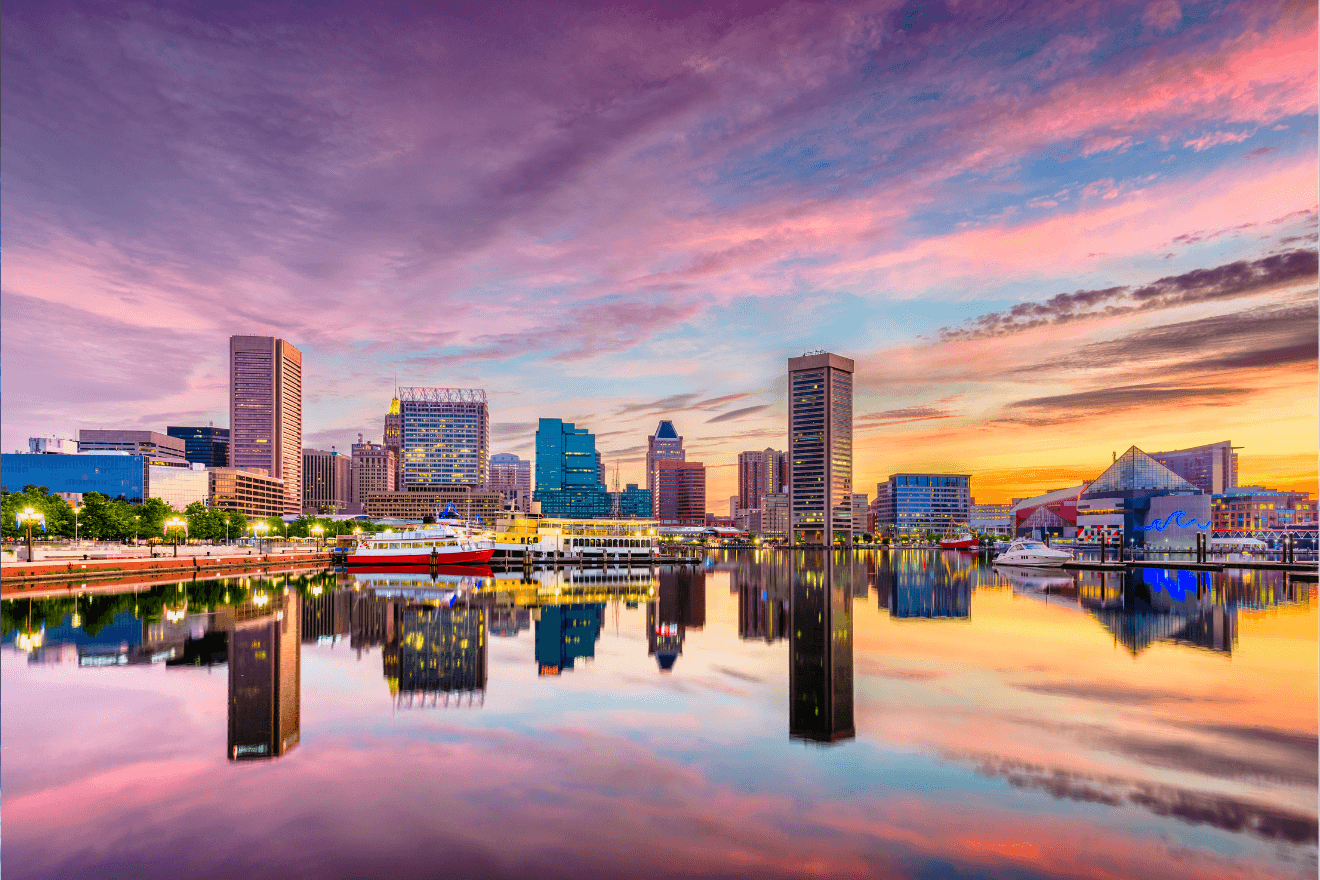Recently, a new bill passed in the Maryland legislature that aims to increase psychedelic access for veterans. It’s an exciting moment in the state following cannabis legalization measures in April. But what are the details of this bill, and what will it mean for the broader psychedelic medicine community? Here’s what to know about the Maryland psychedelics bill 709.
In the last days of session in May, Maryland lawmakers in the State House moved through a pile of bills. One was Senate Bill 709 (SB0709). Proposed by Senator Sarah Elfreth, it would allocate funding towards psychedelic treatment for veterans.
Over 360,000 veterans called Maryland home in 2020 [1]. In 2017, the MD Department of Veteran Affairs estimated that nearly 1 in 10 state residents had served in the military [2]. Between 11% and 30% of veterans develop lasting complications from emotional trauma or PTSD [3]. Existing treatment methods for PTSD often fall short for current veterans experiencing these complications.
Psychedelics represent a new frontier in mental health treatment for veterans. In trials, veterans have shown good responses to psychedelic interventions. Many report improvements across several aspects of PTSD, including cognitive impairment, depression, and anxiety. Most vets also rate their psychedelic experiences as personally meaningful, significant, and insightful [4].
SB0709 passed unanimously and was then sent to Maryland Governor Larry Hogan. He didn’t sign it, but he didn’t veto it either. Instead, he included it in a list of measures that will pass into law without his active support. He made a similar move last month with an adult-use cannabis legalization bill. This move allows leaders to passively allow a bill to move forward without showing outright sponsorship.
Psychedelic Support is encouraged by these advancements for emerging psychedelic treatments for veterans. But what are the implications of Maryland Senate Bill 709? What are its strengths and weaknesses? And what does it mean for the broader progression towards psychedelic access? Let’s get into the brass tax of this exciting bill.
Are Psychedelics Legal in Maryland?
No. One important thing to note about this bill is that it doesn’t mention legalizing psychedelics in Maryland. Psilocybin and other psychedelics are still Schedule I substances, and purchasing or consuming them is still illegal. Possessing spores is legal, but growing them is not.
Maryland drug policy mostly follows regulations from the federal Drug Enforcement Agency (DEA). Not all states do this. For instance, cannabis has been legalized on the state level in many areas but remains illegal federally.
Colorado became the first state to decriminalize psilocybin and veer from the course set by the DEA. In late 2020, Oregon became the first state to ratify state-sponsored psilocybin access, which will go into effect in 2023. This measure allows adults to experience psilocybin through Oregon Psilocybin Services, but taking the substance unsupervised in Oregon is still illegal.
All of this is to say that legalization could be in Maryland’s future, but that wasn’t the goal of this bill. This law focuses on helping veterans with PTSD and traumatic brain injuries by researching and implementing psychedelic interventions.
Details of Maryland Senate Bill 709
Bill 709 creates a new fund to allocate tax dollars towards psychedelic research for veterans. The Traumatic Stress Disorder and Traumatic Brain Injury Alternative Therapies Fund will be made up of money from the state health budget and other sources, like donations. This is essentially a budget bill, allocating money toward veterans with PTSD and traumatic brain injuries [5].
After going into effect in mid-2022, the bill stipulates that the Governor will put $1 million of Maryland’s annual budget towards the fund. The goal of this money is to support research that explores alternative treatments for veterans with PTSD. It also aims to increase free access to these treatments. These alternative methods include MDMA, psilocybin, and ketamine.
Bill 709 is also named the David Perez Military Heroes Act. Perez served in the U.S. Army in Iraq and was politically active in advocating for veterans. He died in 2020, leaving a personal and lasting impact on veterans in Maryland. Now, his name lives on in this bill.
A shifting frame for psychedelic use calls for communication between medical and legal experts. Bill 709 includes cooperation with the Department of Veterans Affairs, Johns Hopkins University, the University of Maryland, Sheppard Pratt, Walter Reed National Military Medical Center, and BrainFutures.
These institutions will help evaluate access to psychedelics and decide how to allocate money from the fund. Several of them have experience working in psychedelics research. Johns Hopkins’ Center for Psychedelic Consciousness Research Unit was the first to get federal approval to re-start research into psychedelics in 2000. The University of Maryland has also sponsored psilocybin research.
A later addition to this list of medical contributors is BrainFutures, a nonprofit focused on human brain health. It was launched in 2015 by the Mental Health Association of Maryland, working on both research and political advocacy.
Some psychedelic enthusiasts may be surprised to learn that Bill 709 was written and passed by a team of primarily conservative politicians. In the past, Republican lawmakers have not supported psychedelic decriminalization. The issue of veteran health crosses party lines, and we hope this is a good sign for the broader world of psychedelic medicine.
Who Can Take Advantage of Maryland’s Psychedelic Bill?
No one, yet. But once it’s implemented, this fund aims to increase access for veterans only. According to the bill, this includes people discharged from active duty within the armed forces, reserves, and any state’s national guard.
The first avenue for enhanced psychedelic access in Maryland will likely be through clinical trials. These trials create an early means of access for a select few people. The hope is that trial outcomes will also lead to legislative changes for the state.
Are you interested in getting into a psychedelic clinical trial? Check out our database and map to find a trial near you.
When Will the Maryland Psychedelics Bill Take Effect?
July 1st, 2022. This is when the bill will be enacted, and the fund begins. More updates on timelines for research and further legislation will follow.[5]5
Strengths and Weaknesses of the Maryland Psychedelics Bill
We’re excited about Bill 709 because we’re just at the beginning of state-level psychedelic legislation. Psychedelic Support believes in better veteran support, and we hope this bill will pave the way for more effective PTSD and TBI treatment for this group. Through this bill, Maryland is investing in a brighter future for its veterans.
In the long-term, we’re hoping for wider access to psychedelics. For instance, Oregon’s psilocybin program is open to all adults who are interested in it. Psychedelics aren’t only helpful for people with PTSD and TBIs, they’ve also shown effectiveness for depression, substance dependency, anxiety, and more.
On the other hand, access in Oregon is limited because the treatments are expensive. One of the strengths of Maryland’s bill is that it imposes “cost-free” access for vets. We hope that similar measures will be put in place with other legislation to support access for people at all income levels.
To promote access, training programs will need to be established to bring therapists up to speed on evidence-based protocols and integration therapy. Bill 709 makes no mention of training programs for psychedelic therapists or facilitators. We’re hoping that requirements for psychedelic therapy will come in time as Maryland invests in research.
Bill 709 is a step in the right direction for psychedelic access in Maryland. We hope other states will make similar, progressive moves towards legalization and implementation soon.
Are you interested in psychedelic therapy and access in Maryland? You can help implement cutting-edge psychedelic medicine and learn about the evolving world of psychedelic research and legislation. Join our professional community to be a part of the movement to transform mental health care.
References:
- 2020 Maryland veteran population map. Maryland Department of Veterans Affairs. (2020, May 4). Retrieved June 8, 2022, from https://veterans.maryland.gov/2019-maryland-veteran-population-map/
- Maryland Department of Veterans Affairs. (2017). Maryland Department of Veteran Affairs Annual Report. Annapolis. Click to access 2017-Annual-Report-FINAL.pdf
- Va.gov: Veterans Affairs. How Common is PTSD in Veterans? (2018, July 24). Retrieved June 8, 2022, from https://www.ptsd.va.gov/understand/common/common_veterans.asp
- Davis, A. K., Averill, L. A., Sepeda, N. D., Barsuglia, J. P., & Amoroso, T. (2020). Psychedelic Treatment for Trauma-Related Psychological and Cognitive Impairment Among US Special Operations Forces Veterans. Chronic stress (Thousand Oaks, Calif.), 4, 2470547020939564. https://doi.org/10.1177/2470547020939564
- State Senate of Maryland. (2022, March 10). Senate Bill 709. Annapolis. Click to access sb0709F.pdf






